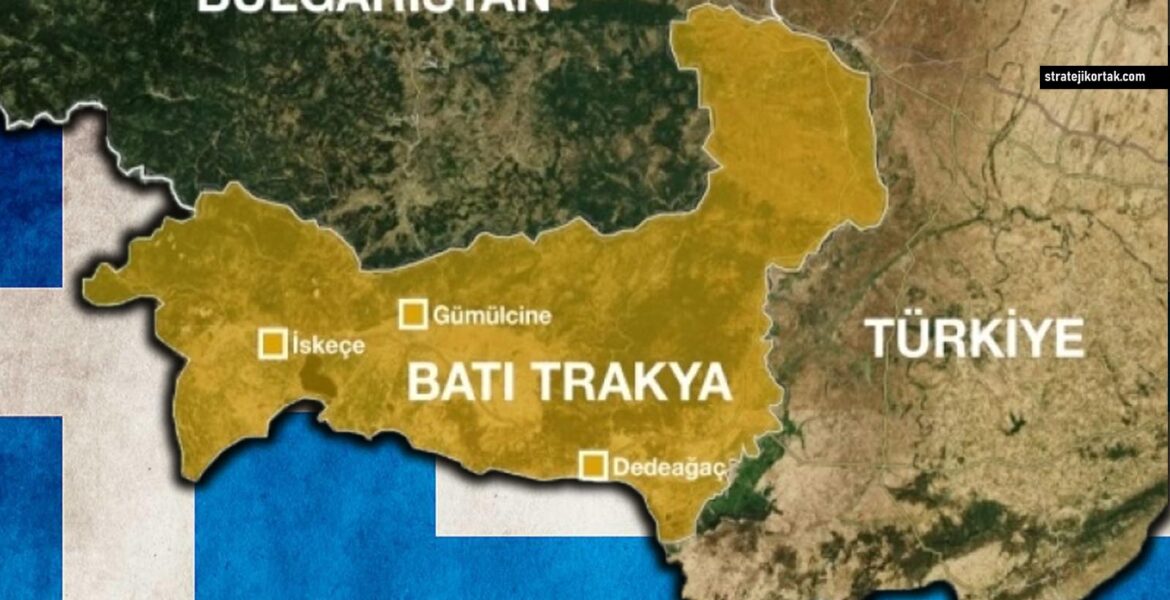Connections between the situation in Greece's Thrace region, that Turkey is claiming, with Armenia's Artsakh region.
In October 2017, the author published an analysis, the main purpose of which was to highlight the possible consequences of one of the legislative initiatives of the then SYRIZA-ANEL government.
That analysis substantiated the claim that the infamous "Kontoni Law" (Law 4491/2017), indirectly paved the way for the timely implementation of clearly defined tactical aspirations of Turkey in Thrace, which are in full alignment with more general revisionist methods, extremely precarious for the territorial integrity of our country.
It is a fact that Erdogan's Turkey, in the context of maximizing the satisfaction of its own maximalist aspirations, is at the same time acting as the executive arm of supranational international centers, which methodically and openly implement a globalization agenda with objectives from the migration of Islamic populations, to the manipulation of international public opinion, and many other things while the COVID-19 pandemic continues.
With the collapse of the USSR, all these post-Soviet states, whose "liberal democratization" was promoted by the "hawks" of American diplomacy (and the military-industrial complex they represented), came to the forefront of these internationalist centers with a vital priority for accelerating the fragmentation and control processes of the wider Russian Eurasian space.
Three decades later, one of the post-Soviet states was experiencing its own "color democratization."
When, at the beginning of 2018, Russia, Armenia and Azerbaijan were one step closer to a final diplomatic solution to the Artsakh conflict, the then Armenian government, led by Serzh Sargsyan, was overthrown by the Open Society "scapegoat" Foundation of the American deep state and Brussels, the current Prime Minister Nikol Pashinyan, resulting in the final cessation of the peaceful settlement of the issue.
The possibility of a military conflict, with the possible firing of a generalized ignition in the wider Transcaucasian region, was now visible, which encouraged Turkey's more active involvement in the region, alongside Ilham Aliyev. Two years later, the inevitable military conflict emerged as the final winner and the rest is history.
But how does all this relate to Greece and Thrace?
Same "recipe" in Thrace
Despite the obvious differences between Artsakh and Thrace, the methodology used by the Turkish-Azerbaijani axis, based on the escalation of the eight stages of the genocide, is similar to that used by Turkey for decades to undermine our national sovereignty in the remote Greek region.

As the author has pointed out in the past, the Turkish leadership, in implementing policies of homogenization and Turkification of the Muslim minority in Thrace, has secured the full support of Germany, Brussels, the OSCE, and many other NGOs (FUEN, HRWF, etc.) that are affiliated with the George Soros Open Society Foundation and the CDRSEE (Center for Democracy and Reconciliation in Southeast Europe).
So let us not harbor illusions.
Turkish-Islamic revisionism and neoliberal internationalism, which will return to the forefront of the international arena - once Joe Biden's election to the US presidency is finalized - have exactly the same goal: The complete destruction of Europe's great cultural world (with the leverage of minorities and illegal immigration currents) and the complete collapse of the Orthodox geocultural core, which inextricably links Greek with Russian culture.
Painful dilemmas for Greece
Admittedly, Turkish diplomacy is emerging stronger after the Artsakh conflict. Despite the fact that in the background the neo-Ottoman revisionist arrogance has been severely hit by the movements of Russian diplomacy in Syria, Libya and Transcaucasia, sooner or later the time will come when Thrace (along with the entire agenda of Greek-Turkish issues) will be brought to the forefront.
It will force the Greek system of power to manage dilemmas, similar to those recently handled by the Prime Minister of Armenia. The painful capitulation, which he was forced to sign, is now a painful historical precedent.
So, what will be the handling of the Greek government in a similar case, with possible consequences even for the territorial integrity of Greece?
The defeat of Armenia teaches us that the political leadership that advocates methods that can undermine the national interests and the future of its homeland will sooner or later be called upon to face the relentless face of history.
If we ignore this historical lesson as well, we must be prepared for the consequences of Greece's long-term unilateral dependence on its Western "partners", who, once again in history, are fully in line with the priorities of our eternal enemy - Turkish expansion.
The views of the author do not necessarily reflect those of Greek City Times.
Ioannis Fritzalas is an independent geopolitical analyst with experience on the "minority issue" of Thrace. He specializes in psychometric analysis and is active professionally in the field of personal and professional counseling. His research activity focuses on Greek-Turkish relations, the phenomenon of genocide and Russian foreign policy. He is the author of "Crimea - The Energy Bridge of Europe".


